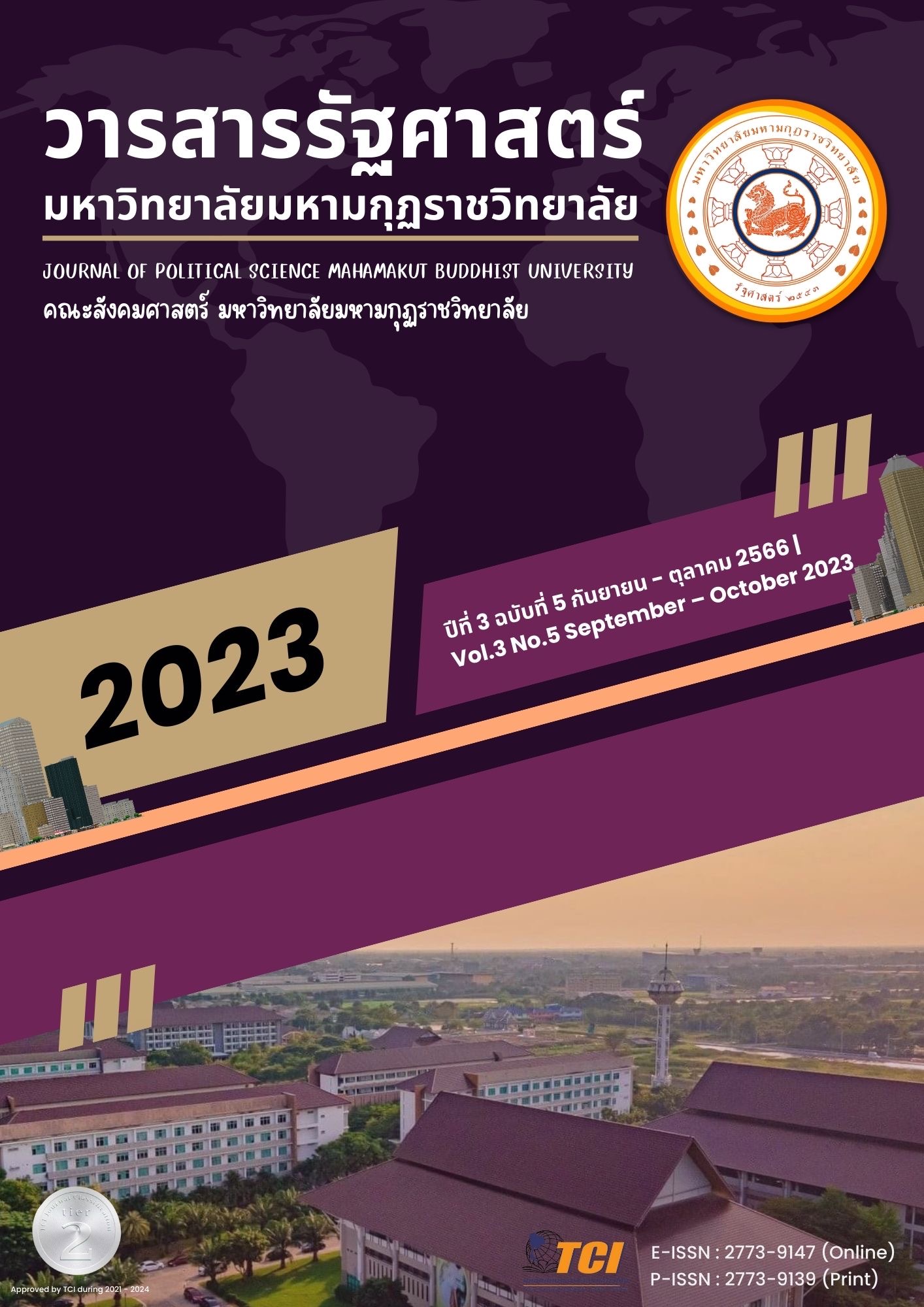MODEL CAUSAL RELATIONSHIP OF FACTORS INFLUENCING THE PERFORMANCE OF ACCOUNTING FIRMS IN THAILAND
Main Article Content
Abstract
The objective of this research were 1) To study factors influencing the performance of accounting firms in Thailand, 2) To study the causal relationship of factors influencing the performance of accounting firms in Thailand 3) To develop a causal relationship model of factors influencing the performance of accounting firms in Thailand.
This research is a quantitative research. The population is 1,500 accounting firm entrepreneurs. The sample population is 480 people. The instrument used for data collection was a questionnaire using a structural equation modeling technique.
Major Findings: 1) Model of competitive advantages influence the performance of accounting firms in Thailand include human resource management knowledge management. The quality of audit reports and accreditations at a high level competitive advantage innovation and the performance of the office moderate. 2) resource management knowledge management innovation management the quality of audit reports and accreditations competitive advantage and performance of business group, there are direct and indirect influences on the performance of the accounting firm business group in Thailand, where the index measuring the consistency level of the structural equation model is appropriate and harmonized with the empirical data ( = 292.29, df = 181, /df = 1.61, p – value = 0.00000, CFI = 0.994, GFI = 0.908, AGFI = 0.86, SRMR = 0.040, RMSEA = 0.048 and
3) Models of competitive advantages that influence the performance of the accounting firm business group, thee is a mutual link with the performance of the business group with integrated work in resource management knowledge management innovation management the quality of audit reports and accreditations
Article Details

This work is licensed under a Creative Commons Attribution-NonCommercial-NoDerivatives 4.0 International License.
References
นุชจรี พิเชฐกุล. (2555). การรายงานและการวิเคราะห์งบการเงิน. กรุงเทพมหานคร: ทีพีเอ็นเพรส.
ปาริฉัตร จันโทริ. (2555). การศึกษาระบบทวิภาคี ทางออกของปัญหาแรงงานไทย. วารสารบริหารธุรกิจ โครงการวารสารบริหารธุรกิจ คณะพาณิชยศาสตร์ และการบัญชี มหาวิทยาลัยธรรมศาสตร์, 35(135), 29-39.
พิชิต เทพวรรณ. (2559). การจัดการทรัพยากรมนุษย์เชิงกลยุทธ์. กรุงเทพมหานคร: วี พริ้นท์ (1991).
สภาวิชาชีพบัญชี. (2564, ธันวาคม). ผู้ประกอบวิชาชีพบัญชีจะปรับตัวอย่างไรกับค่าธรรมเนียมที่ต่ำลง. จดหมายข่าวสภาวิชาชีพบัญชีในพระบรมราชูปถัมภ์.
กระทรวงพาณิชย์, กรมพัฒนาธุรกิจการค้า (2566). รายชื่อสำนักงานบัญชีคุณภาพที่ผ่านการรับรองคุณภาพจากกรมพัฒนาธุรกิจการค้า. นนทบุรี: ผู้แต่ง.
Barney, J. B. (1991a). The resource-based view of strategy: Origins, implications, and prospects. Journal of Management, 17, 97-221.
Barney, J. B. (1991b). Firm resources and sustained competitive advantage. Journal of Management, 17(1), 99-120.
Drucker, F. P. (1995). The practice of management. Oxford, England: Butterworth-Heineman.
Drucker, F. P., & Maciariello, J. A. (2004). The daily Drucker. New York: Harper Collins.
Hair, J. F., Jr., Black, W. C., Babin, B. J., & Anderson, R. E. (2010). Multivariate data analysis (7th ed.). Upper Saddle River, NJ: Prentice-Hall.
Porter, M. E. (1998). The competitive advantage of nation. New York: The Free Press.


